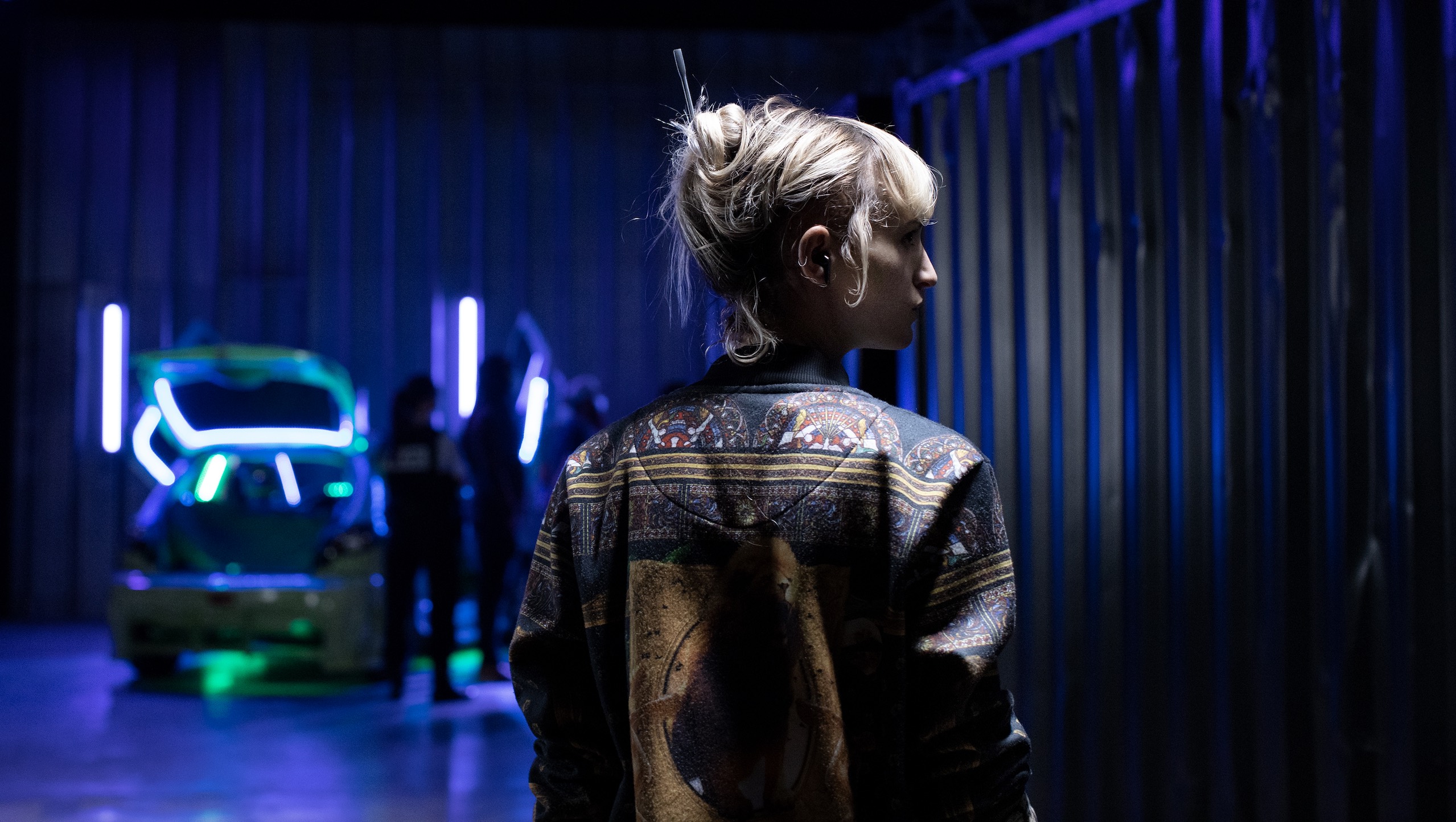“Titane,” a movie whose protagonist has a titanium plate in her head, added to its hardware collection with a Palme d’Or on Saturday night at the 2021 Cannes Film Festival. The director, Julia Ducournau (“Raw“), is only the second woman to win the festival’s top prize, after Jane Campion for “The Piano” in 1993.
“I’m shaking my head,” Ducournau said when accepting the award, as she stood next to her star, Agathe Rousselle. “This is so surreal. I don’t even know why I’m speaking English right now, because I’m French! This evening has been perfect because it’s so not perfect—I love it.” She was alluding to a slip-up earlier in the evening, when the jury president, Spike Lee, announced the win for “Titane” as the very first prize from the feature competition. In Oscars terms, it would be like starting with Best Picture.
Lee acknowledged that the mistake “took a lot of suspense out of the night,” and he apologized both during the ceremony and at the press conference that followed it. He said he specifically spoke to the “Titane” filmmakers as well. When it came to his jury’s enthusiasm for the film, he simply cited a scene. “This is the first film ever where a Cadillac impregnated a woman,” Lee said, to laughter. “And I just thought of something: I wanted to ask her what year Cadillac that was.”
He added, “That’s genius and craziness together. And those two things often match up.”
One of Lee’s fellow jurors, the Austrian director Jessica Hausner (“Little Joe“), said that during their discussions, “believe it or not, we actually didn’t even mention that the director was a woman. We agreed on this film the most.”
Working from a 24-feature competition, the largest since 1995, the jury split two major prizes. The Grand Jury Prize, effectively second place, went to the Iranian filmmaker Asghar Farhadi for “A Hero” and the Finnish director Juho Kuosmanen for “Compartment No. 6.” As they stood onstage to share the award, Kuosmanen told Farhadi, “I’m a huge fan of your films,” and the two of them embraced.
The jury prize was shared by Nadav Lapid for “Ahed’s Knee” and Apichatpong Weerasethakul for “Memoria.” Lapid addressed Lee directly to tell him how much his mother, Era Lapid, who had been Lapid’s editor until she died of lung cancer, loved Lee’s films and had shown him “She’s Gotta Have It” and “Jungle Fever.” Weerasethakul, who won the Palme d’Or 11 years ago for “Uncle Boonmee Who Can Recall His Past Lives,” said he was “really lucky to be standing here while many of my countrymen cannot travel,” noting that “many of them suffer greatly from the pandemic.” He called out to the governments of Thailand and of Colombia (where “Memoria” was shot) to “please wake up and work for your people now.” He also wanted to send a “vibration of hope to everyone here and to those out of this auditorium.”
Best director went to Leos Carax for “Annette,” a musical with an original story and songs by Sparks. The Sparks brothers, Ron and Russell Mael, accepted the award for Carax. Russell Mael said that Carax couldn’t be there because he “had a little problem with his tooth.” He noted that the process of making “Annette” began when they met Carax at Cannes. (Carax had used their song “How Are You Getting Home?” on a car radio in his film “Holy Motors.”)
Renate Reinsve won best actress for her performance as a serially impulsive person in Joachim Trier’s “The Worst Person in the World,” a bittersweet comedy from Norway. Caleb Landry Jones, who plays an eventual mass shooter in the Australian feature “Nitram,” won the prize for best actor and looked stunned. (He sputtered a bit before beginning his speech, “I think I’m going to throw up, I’m sorry.”)
Best screenplay went to the Japanese director Ryusuke Hamaguchi and his co-screenwriter, Takamasa Oe, for “Drive My Car.”












